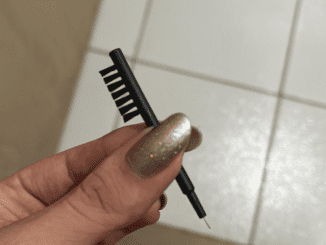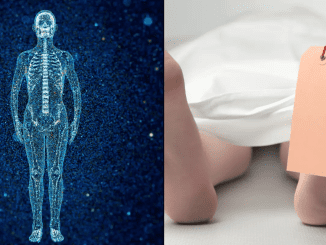When it comes to hydration, we often hear about the importance of water, but electrolytes are just as crucial for maintaining balance in the body. While your wife’s daily intake of 4-6 doses of electrolyte mix may seem like a healthy choice to stay hydrated, you’re right to wonder whether it’s excessive or even potentially harmful. In this article, we’ll dive into the role of electrolytes, explore the risks of overconsumption, and discuss the ideal balance for hydration.
What Are Electrolytes and Why Do We Need Them?

Before we get into the specifics of your wife’s electrolyte intake, it’s important to understand what electrolytes are and why they are essential. Electrolytes are minerals that carry an electric charge and help regulate several important bodily functions, such as:
- Fluid balance: Electrolytes help balance the amount of water inside and outside of cells, tissues, and organs.
- Muscle function: They are necessary for muscle contractions, including the heartbeat.
- Nerve function: Electrolytes assist in transmitting nerve impulses throughout the body.
- pH levels: They help maintain proper pH levels in the blood, ensuring the body’s systems function efficiently.
Common electrolytes include sodium, potassium, magnesium, and calcium. When you sweat, urinate, or engage in physical activity, you lose electrolytes, which is why many people turn to electrolyte drinks to replenish their levels.
How Much Electrolyte Intake is Too Much?
The key question here is whether your wife’s consumption of 4-6 doses per day is healthy or excessive. To answer this, we need to consider how much of each electrolyte is typically needed for an average person.
- Sodium: Most people need around 1,500 to 2,300 milligrams of sodium per day. However, most people already consume enough sodium through their regular diet, and excessive intake can lead to high blood pressure or kidney strain.
- Potassium: The recommended daily intake is around 3,500 to 4,700 milligrams for adults. Potassium is vital for muscle function and regulating blood pressure, but too much can cause dangerous imbalances.
- Magnesium: Adults typically need 310 to 420 milligrams per day. Magnesium helps with muscle function, nerve signaling, and energy production. Overconsumption can cause digestive issues or even affect the heart.
- Calcium: The recommended daily intake for calcium is around 1,000 milligrams for most adults. Excess calcium can lead to kidney stones or impaired absorption of other important minerals.
Drinking 4-6 doses of electrolyte mix daily may contain a significant amount of these minerals, and if your wife is consuming additional foods rich in electrolytes, she could be getting much more than the recommended daily intake. This could lead to imbalances in the body, especially if her electrolyte mixes contain higher levels of sodium or potassium than necessary.
Signs of Overhydration and Electrolyte Imbalance
While staying hydrated is crucial, overconsumption of electrolytes can lead to serious health problems. Some of the common signs of electrolyte imbalance include:
- Swelling and bloating: Excess sodium can cause the body to retain too much water, leading to bloating and swelling in the extremities.
- Muscle cramps or weakness: Too much potassium or magnesium can cause muscle weakness, cramping, or even paralysis in severe cases.
- Heart irregularities: Electrolyte imbalances can cause abnormal heart rhythms (arrhythmias), which can be life-threatening.
- Fatigue and confusion: A deficiency or excess of electrolytes can impact nerve and muscle function, leading to dizziness, confusion, or fatigue.
- Frequent urination: High electrolyte consumption can also increase the amount of urine the body produces, potentially leading to dehydration in the long term.
If your wife is experiencing any of these symptoms, it could be a sign that her electrolyte intake is out of balance. It’s important to track how much she’s consuming and evaluate whether her current regimen aligns with her body’s needs.
Why Your Wife Might Feel the Need for Electrolyte Drinks

Now, it’s also important to consider why your wife has adopted this high electrolyte intake routine. There are a few reasons why people choose to consume electrolyte drinks regularly:
- High activity levels: If she’s very active, particularly with exercise or sports, she might be losing electrolytes through sweat, making it necessary to replace them. However, drinking an electrolyte drink for every workout may still be excessive unless the activity is prolonged or particularly intense.
- Chronic dehydration: Some people struggle with staying hydrated throughout the day, especially if they have conditions like diabetes or take medications that cause excessive urination. In such cases, electrolyte drinks might be more effective at hydrating the body compared to plain water.
- Health conditions: Certain health conditions, such as kidney disease or adrenal insufficiency, can affect the body’s ability to balance electrolytes. If your wife has been advised by a doctor to use electrolyte drinks to manage these conditions, that could explain the higher intake.
Is It Necessary to Drink Electrolyte Drinks Every Day?
For most people, drinking water throughout the day is enough to stay hydrated. However, electrolyte drinks are particularly beneficial in certain situations, such as after a long workout, during hot weather, or when you’re feeling under the weather with conditions like vomiting or diarrhea. These conditions cause rapid loss of fluids and electrolytes, which can lead to dehydration if not replenished.

For someone who is not engaging in intense physical activity or experiencing health issues, the excessive consumption of electrolyte mixes could be unnecessary. In fact, plain water combined with a well-balanced diet typically provides enough electrolytes for daily hydration.
What Can Be Done to Find the Right Balance?
If you believe your wife’s electrolyte intake is excessive, there are steps she can take to evaluate whether it’s necessary and find a healthier balance:
- Consult a Healthcare Professional: It’s always best to speak with a healthcare provider who can assess her hydration needs and whether her electrolyte consumption is appropriate for her specific situation.
- Monitor Symptoms: Keep an eye out for any signs of electrolyte imbalance or dehydration. If she feels fatigued, dizzy, or experiences muscle cramps, it may be a sign that she’s overdoing it.
- Opt for a Balanced Diet: Encourage her to focus on getting electrolytes from whole foods, such as bananas (for potassium), leafy greens (for magnesium), and dairy products (for calcium). This can reduce the need for excessive electrolyte drinks.
- Hydrate Gradually: Instead of consuming large amounts of electrolyte mix all at once, it’s better to hydrate gradually throughout the day. This ensures the body absorbs and uses the electrolytes properly.
Conclusion: Moderation is Key

When it comes to hydration and electrolyte intake, moderation is essential. While electrolyte drinks can be beneficial in certain situations, consuming 4-6 doses per day may be excessive for most people. It’s crucial to listen to your body, stay hydrated with a mix of water and electrolyte-rich foods, and consult a healthcare professional if needed to ensure you’re maintaining a healthy balance. By focusing on moderation and monitoring your intake, you can avoid the risks of overhydration or electrolyte imbalances while still staying hydrated and healthy.


